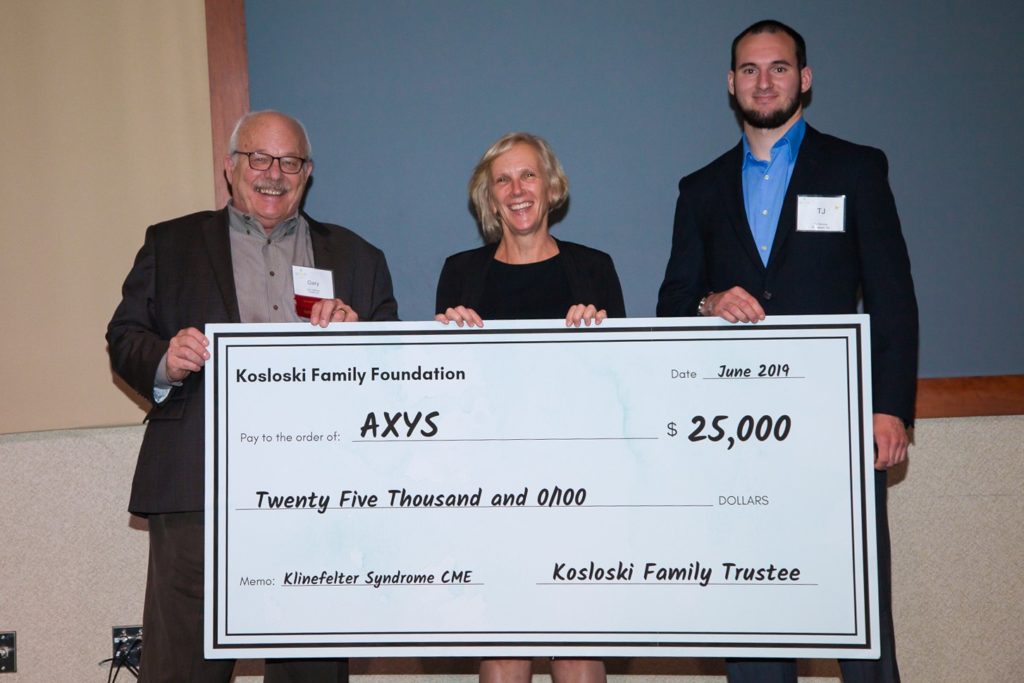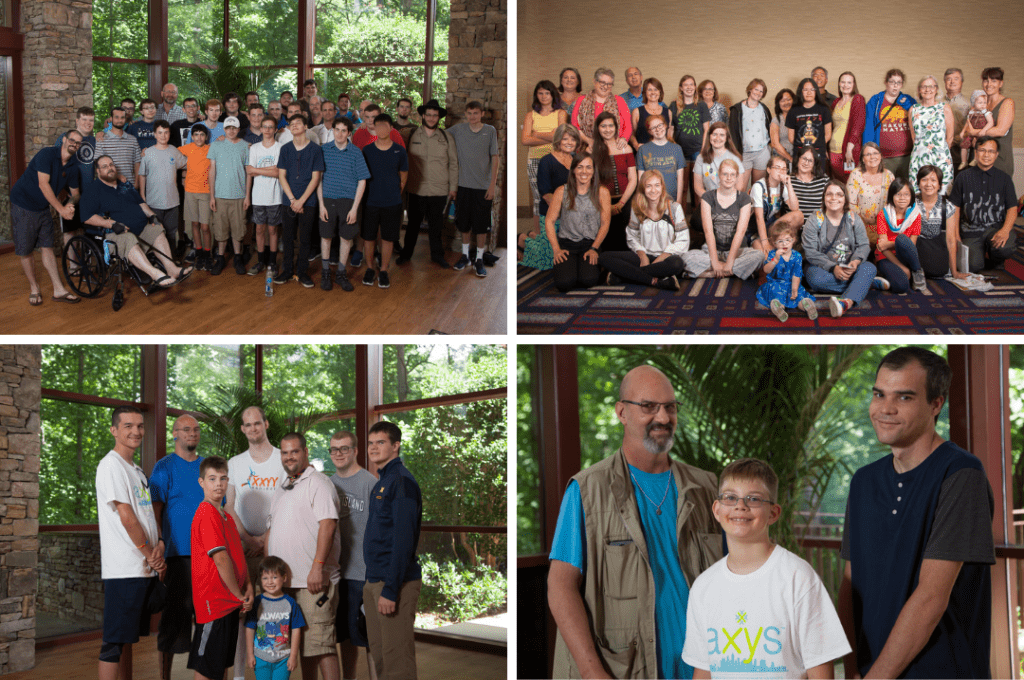AXYS shares articles about our community members to help you gain understanding of X and Y chromosome variations on a personal level. Please enjoy this article and learn about XYY. Note: The name “Steve” is a pseudonym used upon request.
You’d notice Steve. A stocky guy, 6’6’’ tall, is hard to miss. But like most men with an X or Y variation, medically known as a sex chromosome aneuploidy (SCA), everyone missed his condition.
As a child, Steve liked to sit quietly in the back of the class and daydream. He was a smart kid from an academically accomplished family. His teachers and family thought he was just not applying himself. “It was tough to hear the comments from ‘why are you acting so immature?’ to ‘what’s wrong with you?’ over and over.”
He knew he was different and that school was harder for him, but nobody could explain why. In middle school his family finally got him tested. The child development experts diagnosed him with ADD and dyslexia and put him on medication. Steve did not react well to the meds; they gave him night terrors.
Not only was school difficult, he had physical differences too. “I had low muscle tone,” said Steve. “That made sports challenging. I’d rather do individual activities like hiking.” His parents required him to play sports. That was not enjoyable for a boy who had a harder time keeping up physically, found it hard to focus, and who missed social cues. Steve was not timid physically—he loved extreme sports like glade skiing. He also loved solitude and quiet. “I’d go hide in a corner and read a magazine.”
In spite of his challenges, Steve made it to college where he was an average student. His love of learning served him well. “I like to go to museums, travel to places and explore. Reading about places is not enough.”
Despite social challenges, he married a college professor. When they had trouble getting pregnant they discovered he was not fertile because he produced no sperm. A low sperm count is not that unusual but to produce zero sperm was puzzling.
Steve wanted to know: why he did not produce any sperm? Why did he get migraines? Why was his muscle tone low? Why did his hands get shaky? Why was he so much taller than his 5’ 9” father? But then came the Internet. Steve began to research his medical issues.
He came across something called Klinefelter Syndrome and took his knowledge to his primary care doctor. The doctor agreed to order some tests, but Steve, tired of waiting for answers, checked off a few more boxes on the lab sheet making sure a battery of tests was ordered, increasing the likelihood that he’d finally get the answer he sought. It was good thing he did, as he discovered his hormone levels were off.
Steve was referred to an endocrinologist who ordered a karyotype (a picture of a person’s chromosomes) that finally gave him the answer. He had an extra sex chromosome. But not as he suspected–an extra X; Steve has an extra Y.
He found a doctor that had treated men with XXY but never XYY. The condition is half as common–XYY affects about 1 in 1,000 males. In some individuals, the manifestations of XYY are mild and barely noticeable, while others have more severe symptoms.
Steve read every research article on XYY he could find online. He learned that about 30% of those with XYY are diagnosed with an autism spectrum disorder. That explained his social issues. While most males with XYY have intelligence in the normal range, many have language-based and other learning disabilities. Other possible concerns include social skill disabilities, immaturity, low self-esteem, ADHD, impulsivity, and anxiety or mood disorders. After learning all of this Steve thought, “This sounds like me.”
The difficulties a person with XYY has can be alleviated with medical and educational interventions. Speech and motor skill difficulties respond to therapy. Anxiety and mood disorders or ADHD can be treated with behavioral therapy, occupational therapy, and sometimes, appropriate medication. Special education accommodations and teaching methods can help those with XYY achieve academic success despite learning disabilities. Some individuals with XYY have significant anxiety related to school, and a change to a smaller classroom environment or an alternative learning setting, including part-time home schooling, can help. If only Steve had been diagnosed sooner.
Sadly, when Steve got his diagnosis, his wife left him, citing his diagnosis. They had adopted a child who Steve raised as a single parent. Steve has a great job as the Student Center Administrator at a university; he’s been there over 30 years. “I learned that I need a hands-on job,” said Steve. “I would not do well sitting behind a desk.” Steve described how he, like everyone, had to find his niche. He recommends that everyone “find where you fit in life.”
It has not always been easy. His job was jeopardized by misunderstandings with a manager, but disclosing his diagnosis to the HR department and filing a claim with the EEOC straightened out the problem. “I knew the sudden poor performance reviews, when I had been a stellar employee, were discrimination, so I took action.”
Today Steve is raising his son and works to educate healthcare providers and parents about XYY. “It is not that bad,” he says. Steve hopes that someday all doctors and educators will be well versed in sex chromosome aneuploidy (SCA) so people affected get diagnosed very young and can receive the interventions that make life easier. “I also hope they will treat the whole person, not just the symptoms. It is a holistic view that aids diagnosis of an SCA and really helps children.”
Steve served on the board of AXYS, the Association for X and Y Variations. He refers parents with questions to their website genetic.org and their toll free Helpline (888-999-9428) or helpline@genetic.org, where trained volunteers answer questions free of charge. He supports AXYS’ efforts to develop clinics for adults with SCA. “We need to know what to expect as we age,” said Steve. “A study back in the 80s reported that the average life expectancy of a man with XYY is 10 years less than average. For an XXY guy it is 5 years less. Maybe we can change that.”


